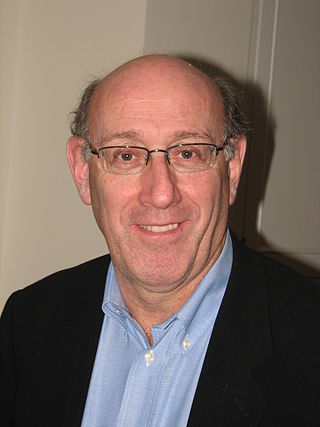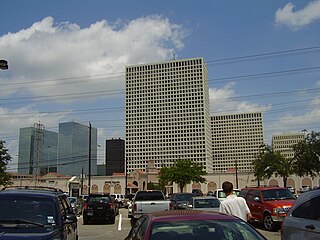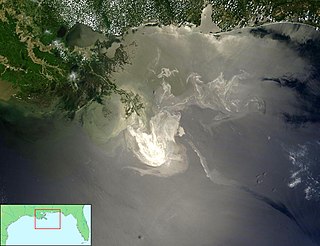
Kenneth Roy Feinberg is an American attorney specializing in mediation and alternative dispute resolution. He served as the Chief of Staff to Senator Ted Kennedy, Special Master of the U.S. government's September 11th Victim Compensation Fund and the Special Master for TARP Executive Compensation. Additionally, Feinberg served as the government-appointed administrator of the BP Deepwater Horizon Disaster Victim Compensation Fund. Feinberg was also appointed by the Commonwealth of Massachusetts to administer the One Fund—the victim assistance fund established in the wake of the 2013 Boston Marathon bombings. Feinberg was also retained by General Motors to assist in their recall response and by Volkswagen to oversee their U.S. compensation of VW diesel owners affected by the Volkswagen emissions scandal. Feinberg was hired by The Boeing Company in July 2019, to oversee distribution of $50 million to support 737 MAX crash victim families. Feinberg is also an adjunct professor at the Columbia University School of Law, University of Pennsylvania Law School, Georgetown University Law Center, New York University School of Law, the University of Virginia School of Law and at the Benjamin N. Cardozo School of Law.

Transocean Ltd. is an American company. It is the world's largest offshore drilling contractor based on revenue and is based in Vernier, Switzerland. The company has offices in 20 countries, including Canada, the United States, Norway, United Kingdom, India, Brazil, Singapore, Indonesia, and Malaysia.

Anadarko Petroleum Corporation was a company engaged in hydrocarbon exploration. It was organized in Delaware and headquartered in two skyscrapers in The Woodlands, Texas: the Allison Tower and the Hackett Tower, both named after former CEOs of the company. In 2019, the company was acquired by Occidental Petroleum.

Deepwater Horizon was an ultra-deepwater, dynamically positioned, semi-submersible offshore drilling rig owned by Transocean and operated by BP. On 20 April 2010, while drilling at the Macondo Prospect, a blowout caused an explosion on the rig that killed 11 crewmen and ignited a fireball visible from 40 miles (64 km) away. The fire was inextinguishable and, two days later, on 22 April, the Horizon sank, leaving the well gushing at the seabed and causing the largest marine oil spill in history.

BP p.l.c. is a British multinational oil and gas company headquartered in London, England. It is one of the oil and gas "supermajors" and one of the world's largest companies measured by revenues and profits. It is a vertically integrated company operating in all areas of the oil and gas industry, including exploration and extraction, refining, distribution and marketing, power generation, and trading.

The Deepwater Horizon oil spill was an industrial disaster that began on 20 April 2010 off of the coast of the United States in the Gulf of Mexico on the BP-operated Macondo Prospect, considered to be the largest marine oil spill in the history of the petroleum industry and estimated to be 8 to 31 percent larger in volume than the previous largest, the Ixtoc I oil spill, also in the Gulf of Mexico. The United States federal government estimated the total discharge at 4.9 MMbbl. After several failed efforts to contain the flow, the well was declared sealed on 19 September 2010. Reports in early 2012 indicated that the well site was still leaking. The Deepwater Horizon oil spill is regarded as one of the largest environmental disasters in world history.
The Macondo Prospect is an oil and gas prospect in the United States Exclusive Economic Zone of the Gulf of Mexico, off the coast of Louisiana. The prospect was the site of the Deepwater Horizon drilling rig explosion in April 2010 that led to a major oil spill in the region from the first exploration well, named itself MC252-1, which had been designed to investigate the existence of the prospect.

The Deepwater Horizon drilling rig explosion was an April 20, 2010 explosion and subsequent fire on the Deepwater Horizon semi-submersible mobile offshore drilling unit, which was owned and operated by Transocean and drilling for BP in the Macondo Prospect oil field about 40 miles (64 km) southeast off the Louisiana coast. The explosion and subsequent fire resulted in the sinking of the Deepwater Horizon and the deaths of 11 workers; 17 others were injured. The same blowout that caused the explosion also caused an oil well fire and a massive offshore oil spill in the Gulf of Mexico, considered the largest accidental marine oil spill in the world, and the largest environmental disaster in United States history.
The following is a timeline of the Deepwater Horizon oil spill. It was a massive oil spill in the Gulf of Mexico, the largest offshore spill in U.S. history. It was a result of the well blowout that began with the Deepwater Horizon drilling rig explosion on April 20, 2010.
The civil and criminal proceedings stemming from the explosion of Deepwater Horizon and the resulting massive oil spill in the Gulf of Mexico began shortly after the April 20, 2010 incident and have continued since then. They have included an extensive claims settlement process for a guilty plea to criminal charges by BP, and an ongoing Clean Water Act lawsuit brought by the U.S. Department of Justice and other parties.
This article covers the effect of the Deepwater Horizon disaster and the resulting oil spill on global and national economies and the energy industry.
Following is a timeline of the Deepwater Horizon oil spill for June 2010.
Following is a timeline of the Deepwater Horizon oil spill for July 2010.
Reactions to the Deepwater Horizon oil spill from various officials and interested parties ranged from blame and outrage at the damage caused by the spill, to calls for greater accountability on the part of the U.S. government and BP, including new legislation dealing with preventative security and clean-up improvements.
Following is a timeline of the Deepwater Horizon oil spill for August 2010.
The Health consequences of the Deepwater Horizon oil spill are health effects related to the explosion of the Deepwater Horizon offshore drilling rig in the Gulf of Mexico on April 20, 2010. An oil discharge continued for 84 days, resulting in the largest oil spill in the history of the petroleum industry, estimated at approximately 206 million gallons. The spill exposed thousands of area residents and cleanup workers to risks associated with oil fumes, particulate matter from Controlled burns, volatile organic compounds (VOCs), polycylic aromatic hydrocarbons (PAHs), and heavy metals.
The Deepwater Horizon oil spill was discovered on the afternoon of 22 April 2010 when a large oil slick began to spread at the former rig site. According to the Flow Rate Technical Group, the leak amounted to about 4.9 million barrels of oil, exceeding the 1989 Exxon Valdez oil spill as the largest ever to originate in U.S.-controlled waters and the 1979 Ixtoc I oil spill as the largest spill in the Gulf of Mexico. BP has challenged this calculation saying that it is overestimated as it includes over 810,000 barrels of oil which was collected before it could enter the Gulf waters.

The Deepwater Horizon oil spill occurred between 10 April and 19 September 2010 in the Gulf of Mexico. A variety of techniques were used to address fundamental strategies for addressing the spilled oil, which were: to contain oil on the surface, dispersal, and removal. While most of the oil drilled off Louisiana is a lighter crude, the leaking oil was of a heavier blend which contained asphalt-like substances. According to Ed Overton, who heads a federal chemical hazard assessment team for oil spills, this type of oil emulsifies well. Once it becomes emulsified, it no longer evaporates as quickly as regular oil, does not rinse off as easily, cannot be broken down by microbes as easily, and does not burn as well. "That type of mixture essentially removes all the best oil clean-up weapons", Overton said.

The GuLF Study, or Gulf Long-term Follow-up Study, is a five-year research project examining the human-health consequences of the Deepwater Horizon oil spill in April 2010. The spill followed an explosion on a drilling rig leased by BP, the British oil company, and led to the release of over four million barrels of oil into the Gulf of Mexico, 48 miles off the coast of Louisiana in the United States.

The RESTORE Act is a United States federal statute that was signed into law by President Barack Obama on July 6, 2012. It was enacted by the 112th United States Congress as an amendment of the Moving Ahead for Progress in the 21st Century Act (MAP-21), a transportation bill that included many other provisions. The act was in response to the Deepwater Horizon oil spill that occurred on April 20, 2010, which caused significant environmental, ecological, and economic damage to the U.S. Gulf Coast.










